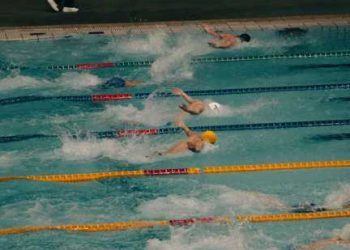Strength and conditioning is an essential aspect of training for youth athletes. Most of the time, young athletes underestimate the importance of strength and conditioning in their overall performance as athletes. This misconception can lead to injuries and poor performance during games. However, for youth athletes to achieve their full potential in their respective sports, they need to prioritize their strength and conditioning training.
Strength and conditioning help youth athletes in different ways. First, it helps improve their physical fitness levels, which allows them to perform better on the field or court. Strength and conditioning exercises help to improve an athlete’s endurance, speed, and agility, which are essential components of any sport. Improved fitness levels also contribute to better body control, balance, and coordination, which reduces the risks of injuries.
Additionally, strength and conditioning training also help to build muscle mass, which promotes the development of natural athleticism. Developing muscle mass early on in a young athlete’s life can have long-term positive effects, such as the prevention of muscle loss as they age. This is especially important for female youth athletes who, at an early age, lose both bone mass and muscle due to hormonal changes that occur after puberty.
Moreover, strength and conditioning training help youth athletes to build confidence. Winning in sports is not always guaranteed, but training hard and consistently can instil a sense of self-belief in athletes. When young athletes realize that their hard work is paying off, they become more determined and, ultimately, more confident in their abilities.
Also, strength and conditioning can help to prevent injuries in youth athletes. When a youth athlete trains to increase their strength, they help their bodies to withstand the strenuous demands that their respective sports require. Proper exercises that target the key muscle groups, such as the core, upper- and lower-body, help athletes to improve their form and reduce the risks of injuries. The proper form of a football tackle or a basketball jump can often be the difference between a career-ending injury and a successful season.
Finally, strength and conditioning can also contribute to the overall well-being of a young athlete. Exercise has been proven to reduce anxiety and depression, and improve self-esteem. Youth athletes who create an exercise routine can reap these benefits, both on and off the field.
In conclusion, the importance of strength and conditioning for youth athletes cannot be overstated. It goes beyond the physical benefits to the mental and emotional aspects of an athlete’s life. Additionally, creating a safe and structured exercise routine is vital for young athletes, with all the required equipment and monitoring from qualified professionals; this helps them build a solid foundation for a lifetime of healthy practices. With good strength and conditioning practices, youth athletes can develop healthy habits, improve their sports performance, and flourish in their day-to-day lives.












